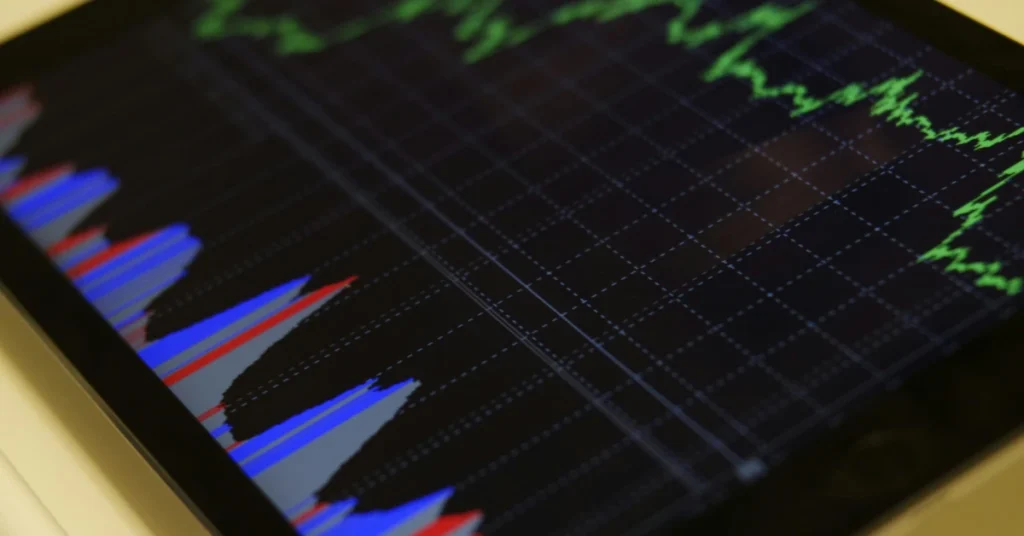What is Leverage in Forex? A 2025 Guide to Trading Bigger
0
0

The post What is Leverage in Forex? A 2025 Guide to Trading Bigger appeared first on Coinpedia Fintech News
Imagine turning a $500 deposit into a $50,000 trade with just a few clicks.
That’s leverage in Forex—your way to control big positions without a big wallet.
In 2025, with mobile trading apps making markets accessible worldwide, leverage is the spark that fuels small accounts to chase big gains.
But it’s no free ride; it can burn you just as fast.
This guide dives into what leverage is, how it works with margin, why it’s a game-changer, and how to use it without losing your shirt.
We’ll touch on brokers like IFC Markets, FP Markets, BlackBull Markets, Eightcap, and FXTM, but the focus is on mastering leverage itself.
Let’s break it down.
What is Leverage in Forex Trading?
Leverage lets you trade more than you’ve got in your account by borrowing from your broker.
It’s like a booster shot for your cash, letting you handle trades way bigger than your deposit—crucial in Forex, where daily trading hits $7 trillion.
It’s shown as a ratio—1:100, 1:500, or even 1:1000—showing how much your deposit gets stretched.
For example, with 1:200 leverage, $1,000 controls a $200,000 position on pairs like EUR/USD or GBP/JPY.
Picture this: You trade $100,000 with $1,000 using 1:100 leverage.
A 1% market move in your favor earns $1,000—a 100% return.
But a 1% move against you wipes your account.
Leverage is a power tool, pumping up wins and losses alike.
Regulations vary—EU caps at 1:30, but offshore brokers often offer 1:500 or more, drawing traders chasing bigger plays.
How Leverage and Margin Fit Together
Leverage and margin are like two sides of a coin.
Margin is the cash you deposit to open a leveraged trade, shown as a percentage of the position.
A 2% margin requirement means $200 controls a $10,000 trade, equaling 1:50 leverage.
Here’s the math:
• Leverage = Total Position Size / Account Equity. Example: $50,000 trade with $500 equity = 50 ÷ 0.5 = 1:100 leverage.
• Margin = Account Equity / Total Position Size. Same example: $500 ÷ $50,000 = 1% margin.
Your broker holds margin as collateral.
If losses hit your equity hard, you’ll face a margin call or position closure.
Negative balance protection, offered by many brokers, ensures you don’t owe more than your deposit—a must for high-leverage trading.
Why Leverage is Crucial in Forex
Forex moves in tiny increments called pips, so leverage lets small accounts make meaningful trades.
Without it, a $500 account might earn a few bucks a day.
With 1:500 leverage, that account can target hundreds—or lose them.
It’s a lifeline for traders in volatile markets, but it’s not a shortcut to riches.
In 2025, mobile apps make leverage easy to access, but without risk management—like stop-loss orders—you’re playing with fire.
The Real Impact of Leverage: A Quick Example
Say you’ve got $1,000 and trade GBP/USD with no leverage, risking 1% ($10) on a 100-pip stop loss ($0.10 per pip).
A 100-pip win makes you $10 (1% profit); a 100-pip loss costs $10 (1% loss).
Now, with 1:100 leverage, you’re running a $100,000 trade.
That 1% risk ($10) turns into $1 per pip.
A 100-pip win gets you $100 (10% profit), but a 100-pip loss takes $100 (10% loss).
At 1:500 leverage, a 100-pip win could bag you $500 (50% profit), but a loss could wipe you out.
That’s why stop-losses are your best friend.
High-Leverage Brokers to Know
Want high leverage forex brokers to crank up your trades in 2025? Here’s a lineup of solid ones with killer mobile apps.
| Broker | Max Leverage | Key Features | Platform/App Support |
| IFC Markets | 1:400 | Tiered system, diverse assets | NetTradeX app |
| FP Markets | 1:500 | Hybrid ECN/STP model | cTrader, MT4/MT5 |
| BlackBull Markets | 1:500 | Fast execution, social trading | ZuluTrade, MT4/MT5 |
| Eightcap | 1:500 | AI tools like Crypto Crusher | MT4/MT5, proprietary |
| FXTM | 1:1000 | User-friendly, multiple accounts | FXTM Trader app |
| All are regulated, with negative balance protection, but check their fees and platform fit for your style. |
Is High-Leverage Trading Legal?
Leverage rules depend on the broker’s regulator.
The EU limits retail traders to 1:30, the US to 1:50, but offshore regulators like FSC Mauritius or BVI allow 1:500 or higher.
It’s legal globally, but you must pick regulated brokers with clean records to avoid scams.
Negative balance protection is critical to cap losses at your deposit.
Always check local laws to stay compliant.
How to Choose a High-Leverage Broker
Picking a broker is like choosing a gym buddy—trust and fit are everything.
Here’s what I prioritize:
• Regulation: FCA, ASIC, or FSC Mauritius with a spotless history.
• Leverage: 1:100+ for major pairs like EUR/USD.
• Costs: Spreads under 1 pip, commissions below $9 per lot. Look for rebates.
• Execution: Sub-0.2-second speeds for scalping.
• Platforms: MT4/MT5, cTrader, or proprietary apps with APIs.
• Risk Tools: Stop-losses, margin alerts, and insurance funds.
• Support: 24/7 chat, preferably multilingual.
Getting Started with High-Leverage Trading
Ready to jump in? Follow these steps:
- Learn First: Dig into leverage, margin, and risk management. Broker webinars or free online courses are great places to start.
- Choose a Broker: Check out platforms that vibe with your style—scalping, long-term, or a mix.
- Sign Up: Quick online form, verify with ID and a recent bill.
- Test in Demo: Play with virtual funds to sharpen your strategy.
- Trade Small: Live trading messes with your head—start tiny to stay chill.
Risks of High-Leverage Trading
Leverage is a multiplier, not magic.
A bad trade with 1:500 leverage can erase your account.
Emotions like greed or panic lead to overtrading.
Algorithms dominate 80% of Forex, outpacing manual traders.
Small accounts push risky moves, and scams promise “easy millions.”
Trading on shaky Wi-Fi or without stop-losses invites trouble.
Discipline and education keep you grounded.
Avoiding Forex Scams
Scams prey on leverage’s hype. Here’s how to stay safe:
• Know the Reality: Pros average 10-12% yearly returns. Promises of 50% are lies.
• Stick to Regulated Brokers: Check for FCA or ASIC licenses. Avoid cold calls or social media “gurus” with fake portfolios.
• Skip Hype: Paid bots and courses often come from failed traders. If it sounds too easy, it’s a trap.
• Focus on Tools: Legit brokers offer platforms and risk tools, not miracles.
Wrapping Up: Leverage Wisely in 2025
Leverage in Forex is your shot at big trades with small capital, but it’s a skill to master.
In 2025, phone apps make it super easy to get started, but winning means knowing margin, using stop-losses, and sticking with legit brokers.
Practice in demos, start small, and keep learning—profits come from patience, not chasing quick wins.
Got a leverage tip or question? Share it in the comments.
0
0
 Manage all your crypto, NFT and DeFi from one place
Manage all your crypto, NFT and DeFi from one placeSecurely connect the portfolio you’re using to start.







